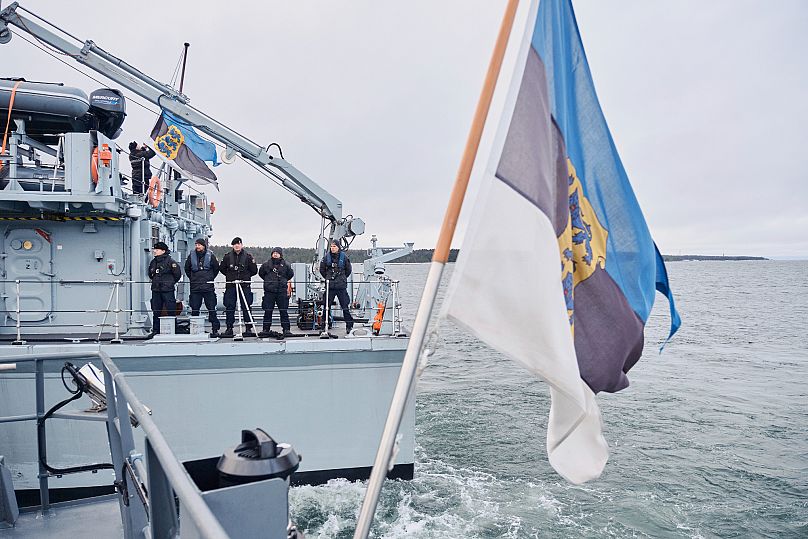A Belgian-led NATO group is currently patrolling in the Baltic Sea near Estonia following a string of sabotage incidents in the strategic waters.
The Baltic has been at the centre of geopolitical tensions, particularly since the start of the full-scale Russian invasion of Ukraine.
It is also an area of importance for NATO, particularly due to the presence of numerous undersea telecommunications cables.
These are regularly threatened by ships suspected of having links with Russia’s "shadow fleet" of vessels.
NATO said in January that it would increase its military presence and technological innovation in the Baltic Sea to protect critical infrastructure from sabotage, the head of the transatlantic alliance said at a Helsinki Summit.
Safeguarding infrastructure "is of utmost importance," Secretary General Mark Rutte told reporters, citing energy from pipelines and the 95% of internet traffic that is secured through undersea cables.

That comes after damage to a cable between Lithuania and Sweden, another between Germany and Finland, and others between Estonia and Finland.
Investigations are underway, but NATO's Secretary General believes there is cause for grave concern.
"We have seen elements of a campaign to destabilise our societies through cyber-attacks, assassination attempts and sabotage," Rutte said, with Russia the presumed culprit.
In response, NATO is increasing surveillance via a small fleet of maritime drones, while an enhanced surveillance operation called "Baltic Sentry" involves frigates and maritime patrol aircraft.
"We will respond decisively when critical infrastructure in our neighbourhood is at risk. Protecting it requires both national and international action," Finnish President Alexander Stubb said.
Leaders of NATO countries in the Baltic region also pledged to push for robust enforcement, especially when it comes to the Russian "shadow fleet" of tankers used by Moscow to evade Western sanctions on oil sales.
The aging vessels, often with obscure ownership, routinely operate without Western-regulated insurance.







